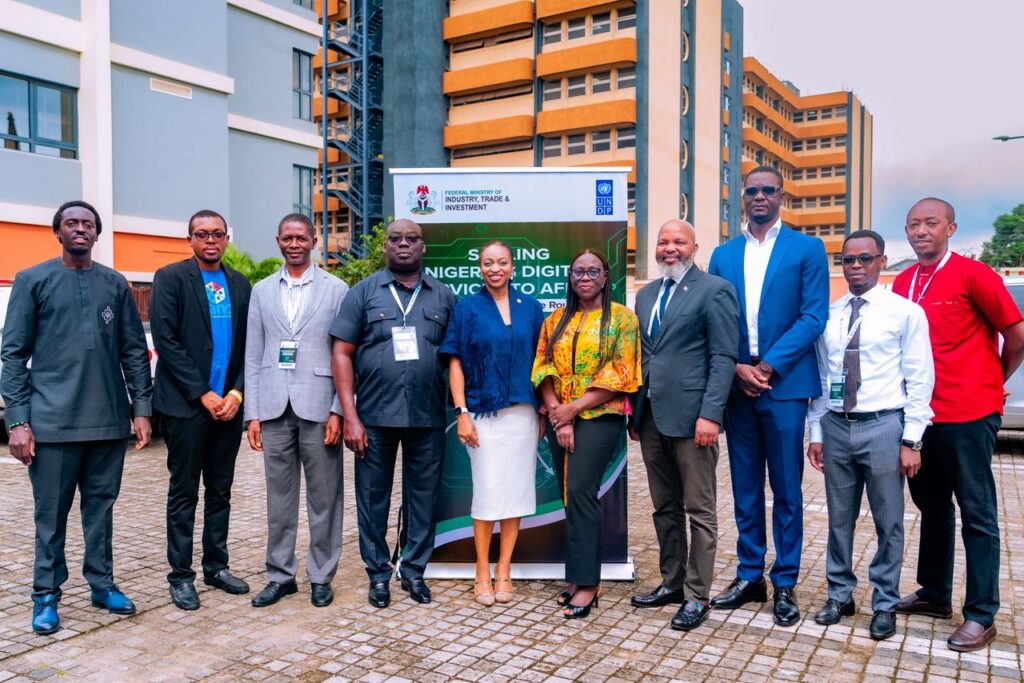
Nigeria has strengthened its role in advancing digital trade integration across Africa by hosting the first Digital Trade Market Access Roundtable in Lagos, aimed at implementing the AfCFTA Digital Trade Protocol.
Led by the Federal Ministry of Industry, Trade and Investment (FMITI), the event brought together regulators from Ghana, Egypt, Kenya, Rwanda, and South Africa to guide Nigerian digital firms on market entry and expansion under the AfCFTA framework.
Minister Dr. Jumoke Oduwole reaffirmed Nigeria’s commitment through key actions such as forming an AfCFTA Central Coordination Committee, publishing tariff concessions, and conducting a five-year implementation review. She noted that Nigeria, as the AU co-champion of the Digital Trade Protocol, is positioned to lead Africa’s digital transformation.
The ministry identified five priority expansion markets—Egypt, Ghana, Kenya, Rwanda, and South Africa—and is exploring license passporting to simplify regulatory approvals across borders.
The roundtable also featured direct engagement between Nigerian firms and foreign regulators, with Oduwole emphasizing that domestic compliance is essential for businesses seeking government support in international markets.
Potential Benefits to African Trade:
The roundtable signals a major step toward building an integrated African digital economy. By mapping digital firms, developing a national directory, and identifying five priority markets (Egypt, Ghana, Kenya, Rwanda, and South Africa), Nigeria is positioning its businesses for seamless market access and cross-border scalability.
The discussions on license passporting could reduce regulatory duplication, cutting time and costs for firms expanding across Africa. Participating countries identified investment opportunities in fintech, e-commerce, logistics tech, edutech, health tech, and agri-tech, sectors expected to drive growth and inclusion.
Overall, the initiative enhances intra-African digital trade, promotes regulatory cooperation, and advances the goals of the AfCFTA, fostering competitiveness, innovation, and sustainable economic integration across the continent.
The discussions on license passporting could reduce regulatory duplication, cutting time and costs for firms expanding across Africa. Participating countries identified investment opportunities in fintech, e-commerce, logistics tech, edutech, health tech, and agri-tech, sectors expected to drive growth and inclusion.
Overall, the initiative enhances intra-African digital trade, promotes regulatory cooperation, and advances the goals of the AfCFTA, fostering competitiveness, innovation, and sustainable economic integration across the continent.
